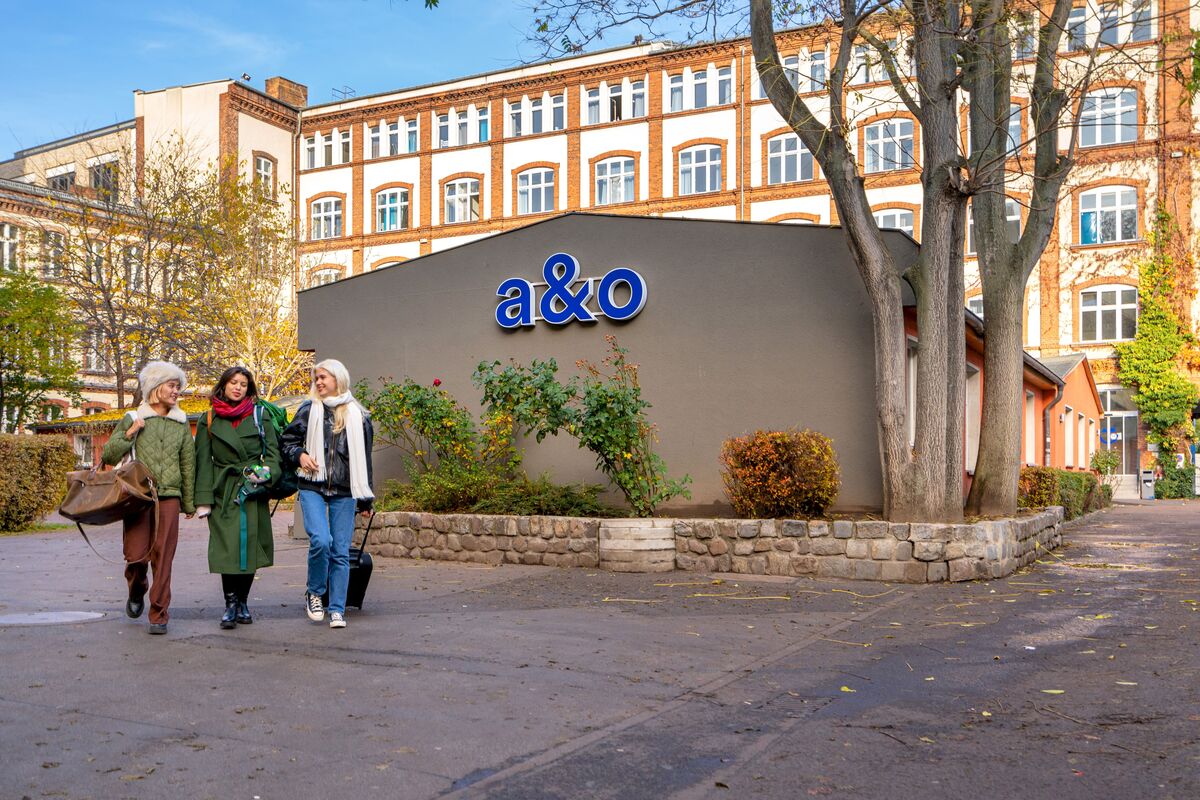Skift Take
a&o is part of the hospitality industry that honors refuse, repurpose, reduce as the new slogan in achieving its net-zero goal. And giving new life to old buildings on the way.
One was an old dairy factory in Stuttgart. Another, an old bread factory in Salzburg. In Cologne, there’s also a former headquarters of German federal intelligence. Now – they are all a&o hostels. You can stay at one for about 43 dollars a day.
“We walk around cities and look around for dirty, ugly buildings,” said Oliver Winter, founder and chief executive officer at a&o hostels. “Or sometimes, we approach brokers of office spaces and we say we need a ugly and dirty one — 50 percent of our properties we found by ourselves,” he said.
Founded in 2000, Berlin-based a&o hostels operates 40 hostels in 25 cities in Europe, the United Kingdom and in Israel. The chain’s target audience is backpackers as well as solo travelers, families, school groups and clubs. A&o took the net zero pledge, aspiring to be Europe’s “zero-emissions hostel chain” by 2025 in 2017. The same year it was bought by American investor TPG Real Estate.
“Our goal is net zero in 2025,” Winter said. “Because for us as a hostel chain with young customers, it’s crucial that we are answerable to them. And the GenZ customers want guilt-free, affordable travel that is also climate conscious.”
The chain’s top three priorities are energy savings, supporting local suppliers for food (reducing food miles), and refusing single use plastic.
To highlight the progress made on this front, Winter noted that the company has been able to reduce its carbon footprint from nine kilograms per guest per day to three and a half kilograms per day per guest today. By next, he hopes that number further reduces to two and a half kilograms.
And repurposing old buildings is a big part of achieving the net-zero dream for Winter. Not only is it economical to repurpose than to build anew, but doing this allows a&o to start with a zero carbon footprint at the outset of a new property.
“In the first 10 years of a&O, we did this for economic reasons, and to carve a niche for ourselves,” Winter said. “We didn’t want to compete with other hostels or hotels for a central location, but in doing this, we realized that we can have significant savings.”
Winter noted that every refurbished and repurposed property gives the company a 15-20 years headstart compared to new buildings taking into account construction costs, maintenance and operational overheads.
In addition, this strategy allows a&o to enter markets that are otherwise hard to afford. “This helps us enter markets we would have never dreamed of,” Winter said. “For 23 years, we couldn’t step into markets like London, Paris and Dublin. And now, we are in negotiations to lease an office building in Dublin and considering turning a former police station in London into an a&o hostel.”
Winter’s plan of earmarking office buildings that do not meet the environmental, social and governance laws (ESG) and turning them into net-zero youth hostels is a win-win scenario. A&o recorded sales of around 70 million euros ($75 million).
Commercial developers and landlords everywhere are under pressure to comply with the new sustainability laws. The United Kingdom passed mandatory ESG laws in January last year that require certain companies to provide a “sustainability” information statement on climate-related disclosures in their annual strategic report. These regulations also require certain limited liability partners to provide a similar sustainability information statement on climate-related disclosures in their annual strategic report or their energy and carbon report.
Practically, this means enacting energy saving practices and making the property efficient enough to reduce utility costs. And 47 percent of UK’s landlords believe the office market is lagging behind other areas of the property sector in implementing/adopting environmental policies and 84 percent of landlords report a vacancy rate of 30 percent and above as average among their office building portfolio.
“We figured in every city there are outdated office buildings that are not hitting ESG criteria, so it’s perfect for us to repurpose them,” Winter said. Besides, no one needs these many office buildings anymore when how we work has dramatically changed.”
Dwell Newsletter
Get breaking news, analysis and data from the week’s most important stories about short-term rentals, vacation rentals, housing, and real estate.
Have a confidential tip for Skift? Get in touch
Tags: ESG, future of lodging, hostels, sustainability, Travel Trends, youth hostels
Photo credit: a&o's property in Berlin Friedrichshain was former screw-and-spring factory and also the chain's very first hostel. Source: a&o Hostels
